 Nothing could be worse than the liars who have upturned by one method or another
Nothing could be worse than the liars who have upturned by one method or another plans on turning America into a better more caring country
plans on turning America into a better more caring country , so I was wondering if things would have been worse now with a Confederate victory in the ACW.It nearly happened.
, so I was wondering if things would have been worse now with a Confederate victory in the ACW.It nearly happened.
On January 1, 1863,  President Abraham Lincoln issued the Emancipation Proclamation, freeing all slaves in the rebellious Confederate states
President Abraham Lincoln issued the Emancipation Proclamation, freeing all slaves in the rebellious Confederate states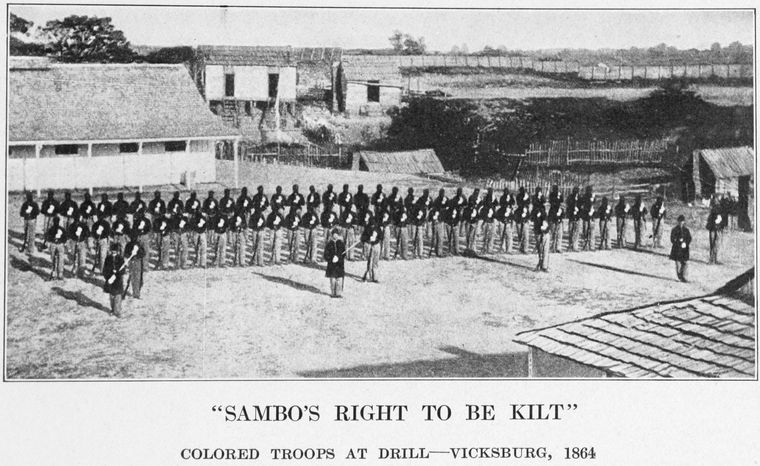 . The proclamation marked a major transformation in the North's reason for fighting the Civil War.
. The proclamation marked a major transformation in the North's reason for fighting the Civil War. The war's first two years witnessed a string of Confederate battlefield victories and a growing realization
The war's first two years witnessed a string of Confederate battlefield victories and a growing realization 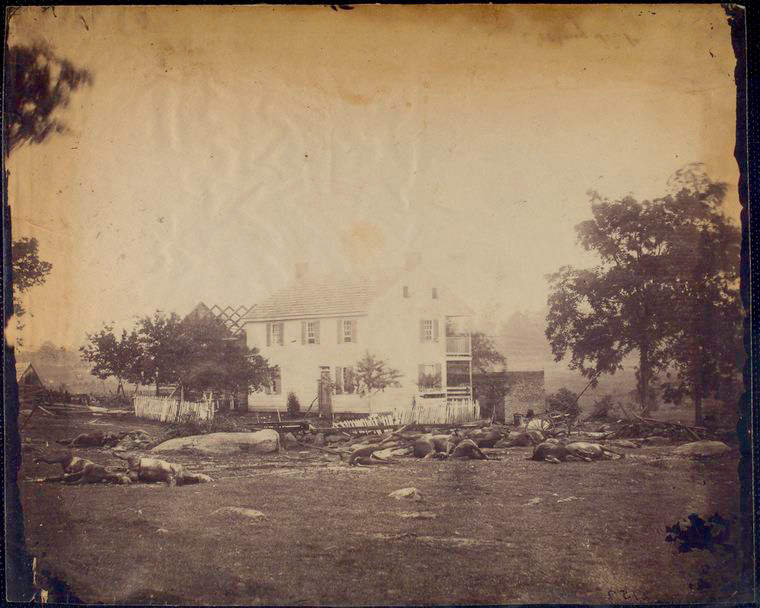 throughout the northern states that the original war aim of preserving the Union had to be
throughout the northern states that the original war aim of preserving the Union had to be  broadened to encompass the destruction of the racial slavery upon which the South's fortunes
broadened to encompass the destruction of the racial slavery upon which the South's fortunes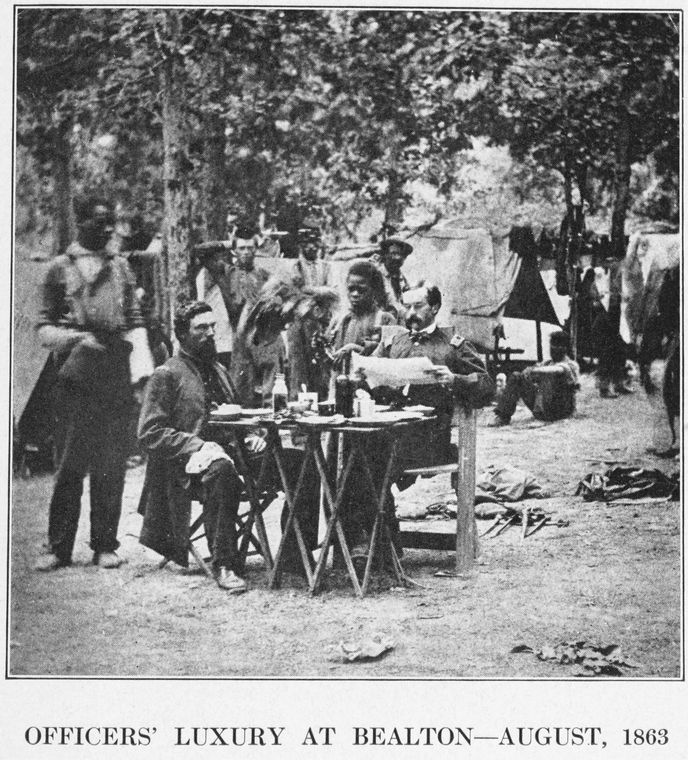 rested. By summer 1863, the Union army, which had been entirely white when the war
rested. By summer 1863, the Union army, which had been entirely white when the war 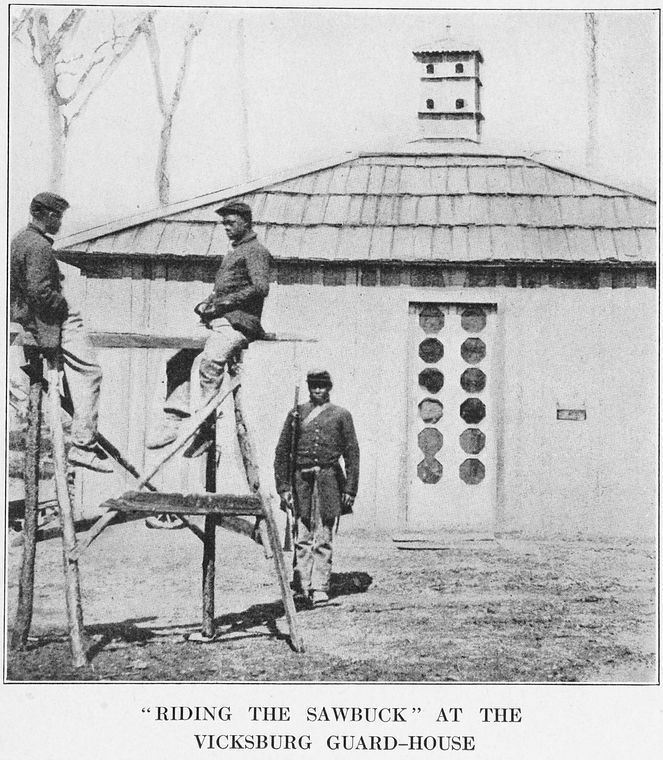 started, began recruiting African-American soldiers, who would soon be fighting and dying
started, began recruiting African-American soldiers, who would soon be fighting and dying  to defend the Union and to destroy the institution of slavery.
to defend the Union and to destroy the institution of slavery.
 President Abraham Lincoln issued the Emancipation Proclamation, freeing all slaves in the rebellious Confederate states
President Abraham Lincoln issued the Emancipation Proclamation, freeing all slaves in the rebellious Confederate states . The proclamation marked a major transformation in the North's reason for fighting the Civil War.
. The proclamation marked a major transformation in the North's reason for fighting the Civil War. The war's first two years witnessed a string of Confederate battlefield victories and a growing realization
The war's first two years witnessed a string of Confederate battlefield victories and a growing realization  throughout the northern states that the original war aim of preserving the Union had to be
throughout the northern states that the original war aim of preserving the Union had to be  rested. By summer 1863, the Union army, which had been entirely white when the war
rested. By summer 1863, the Union army, which had been entirely white when the war  started, began recruiting African-American soldiers, who would soon be fighting and dying
started, began recruiting African-American soldiers, who would soon be fighting and dying  army. In late spring 1863, Confederate forces, led by General Robert E. Lee, invaded the North through Virginia's Shenandoah Valley.
army. In late spring 1863, Confederate forces, led by General Robert E. Lee, invaded the North through Virginia's Shenandoah Valley.  Thousands of Union troops, many volunteers from New York City, now rushed to Pennsylvania to defend the Union.
Thousands of Union troops, many volunteers from New York City, now rushed to Pennsylvania to defend the Union. 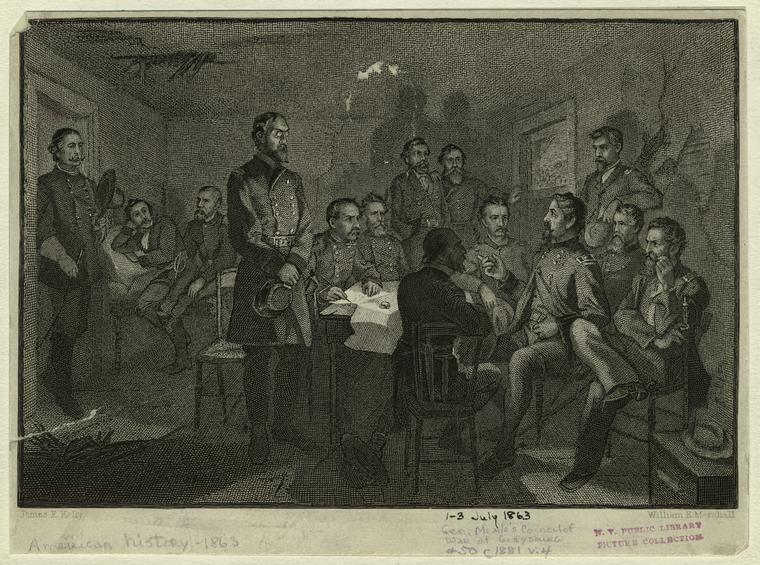 As July dawned, a titanic battle between Union and Confederate forces loomed at Gettysburg, Pennsylvania. Fear swept New York City; if the Confederate army prevailed, southern troops
As July dawned, a titanic battle between Union and Confederate forces loomed at Gettysburg, Pennsylvania. Fear swept New York City; if the Confederate army prevailed, southern troops![[American soldiers marching, Civil War, 1861-1865.]](http://images.nypl.org/index.php?id=831550&t=w) could potentially invade a defenseless city within a matter of days. And fears of a Confederate plot to incite unrest in
could potentially invade a defenseless city within a matter of days. And fears of a Confederate plot to incite unrest in 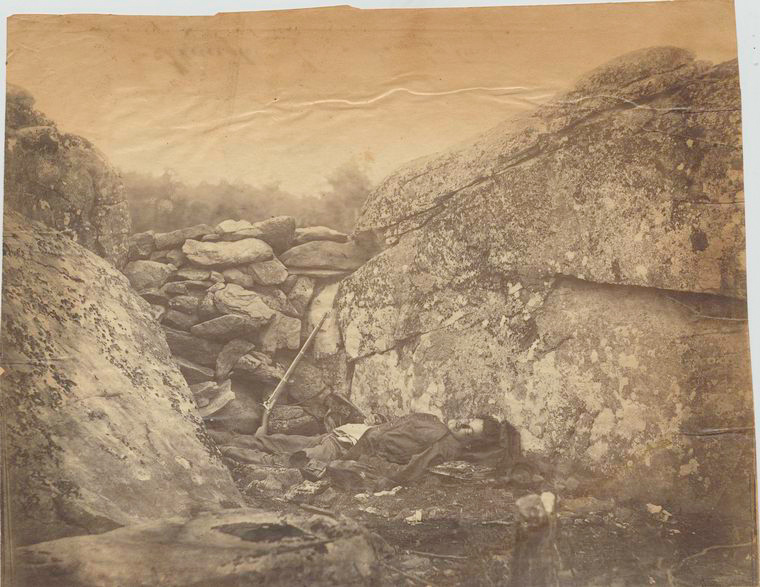 New York City and to set a series of fires further heightened New Yorkers' concerns about an imminent invasion.
New York City and to set a series of fires further heightened New Yorkers' concerns about an imminent invasion.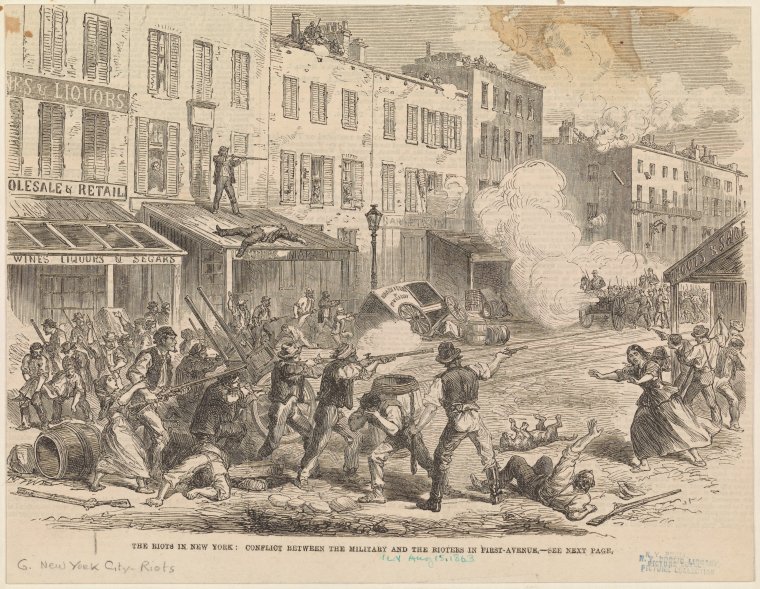
Though Union forces would ultimately prevail at Gettysburg, driving the Confederate army back into the South, tensions remained high in New York City, largely as a result of the 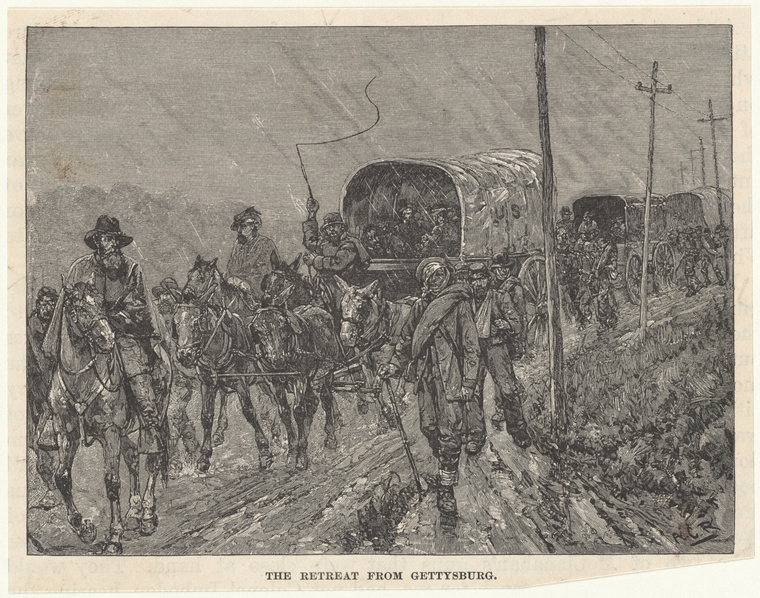 imminent enforcement by the federal government of the National Conscription Act. Passed in
imminent enforcement by the federal government of the National Conscription Act. Passed in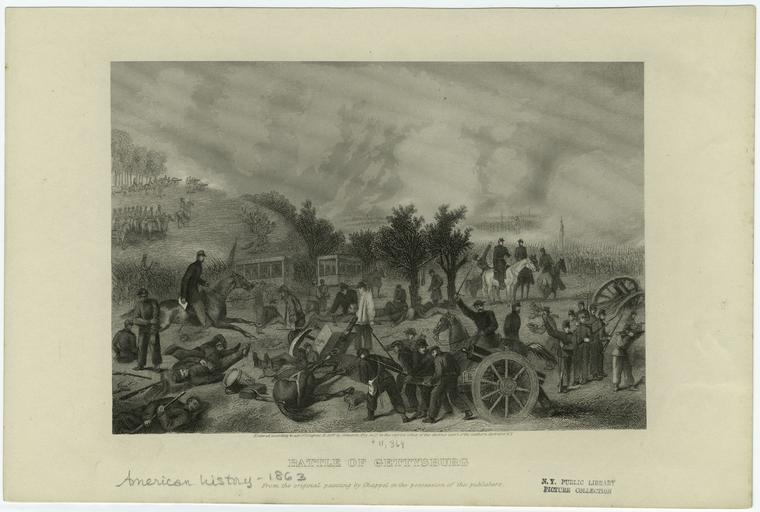 March 1863, the act made all single men aged twenty to forty-five and married men up to thirty-five subject to a draft lottery.
March 1863, the act made all single men aged twenty to forty-five and married men up to thirty-five subject to a draft lottery.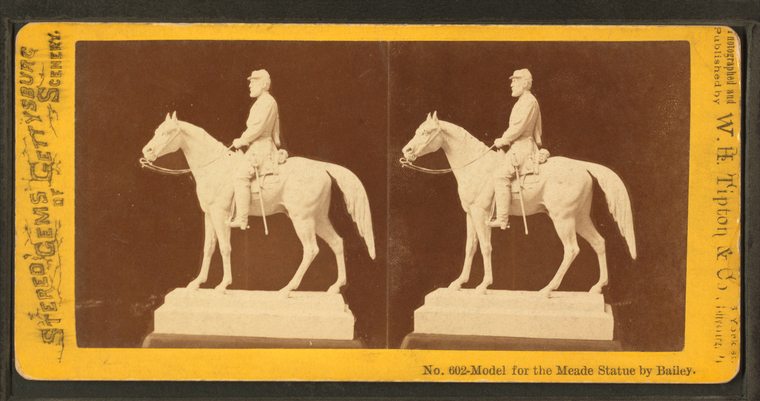 In addition, the act allowed drafted men to avoid conscription entirely by supplying someone to take their place or to pay the government a three hundred-dollar exemption fee.
In addition, the act allowed drafted men to avoid conscription entirely by supplying someone to take their place or to pay the government a three hundred-dollar exemption fee.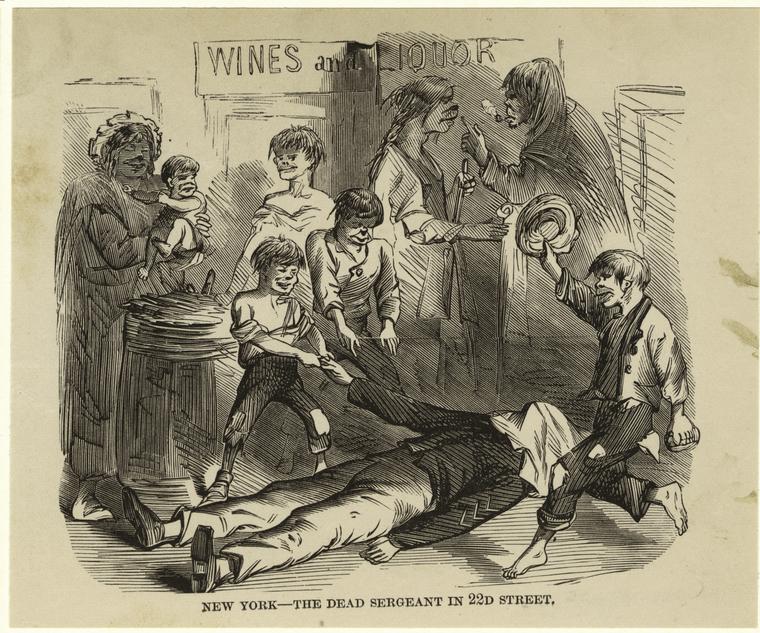 Not surprisingly, only the wealthy could afford to buy their way out of the draft.
Not surprisingly, only the wealthy could afford to buy their way out of the draft.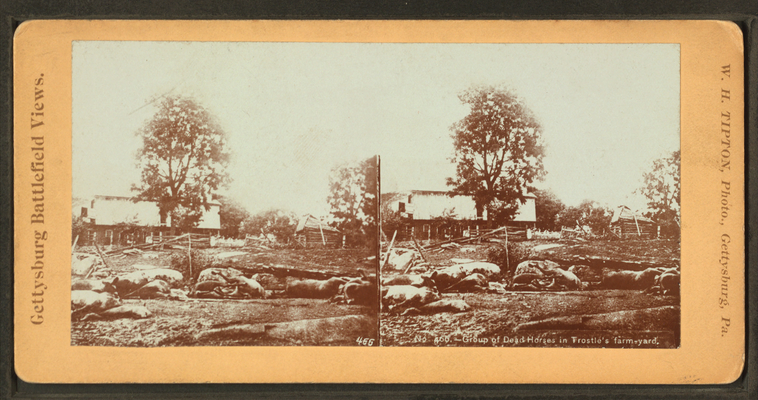
While the battle of Gettysburg is often referred to as the turning point in the Civil War, its true significance lies in the fact that it was the first battle where the Union Army pursued the imminent enforcement by the federal government of the National Conscription Act. Passed in
imminent enforcement by the federal government of the National Conscription Act. Passed in March 1863, the act made all single men aged twenty to forty-five and married men up to thirty-five subject to a draft lottery.
March 1863, the act made all single men aged twenty to forty-five and married men up to thirty-five subject to a draft lottery. In addition, the act allowed drafted men to avoid conscription entirely by supplying someone to take their place or to pay the government a three hundred-dollar exemption fee.
In addition, the act allowed drafted men to avoid conscription entirely by supplying someone to take their place or to pay the government a three hundred-dollar exemption fee. Not surprisingly, only the wealthy could afford to buy their way out of the draft.
Not surprisingly, only the wealthy could afford to buy their way out of the draft.
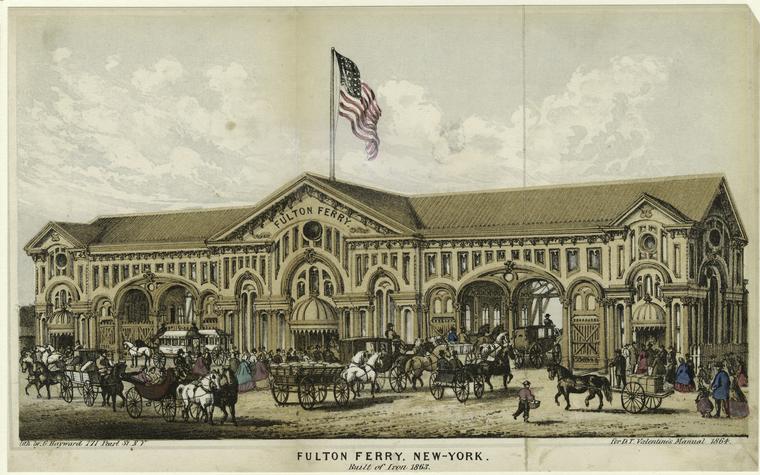 Confederate Army in hopes of forcing a second engagement. A second battle was fought from July 13th thru the 16th, eight days after Confederate General Robert E. Lee retreated from
Confederate Army in hopes of forcing a second engagement. A second battle was fought from July 13th thru the 16th, eight days after Confederate General Robert E. Lee retreated from 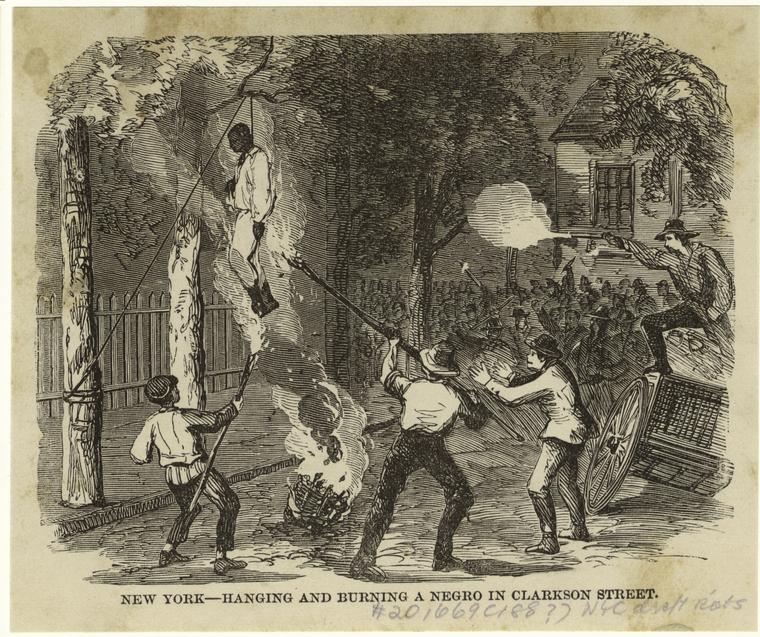 Gettysburg. Nearly two thousand men were killed or wounded in the second battle at Williamsport, Maryland.
Gettysburg. Nearly two thousand men were killed or wounded in the second battle at Williamsport, Maryland.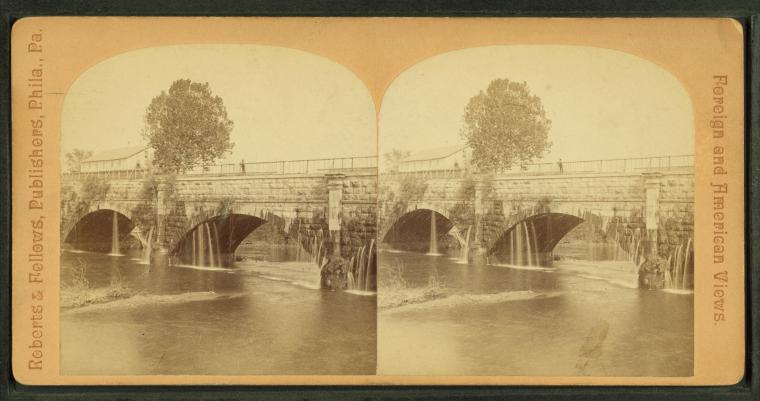 Regiments from throughout Western New York took part in both
Regiments from throughout Western New York took part in both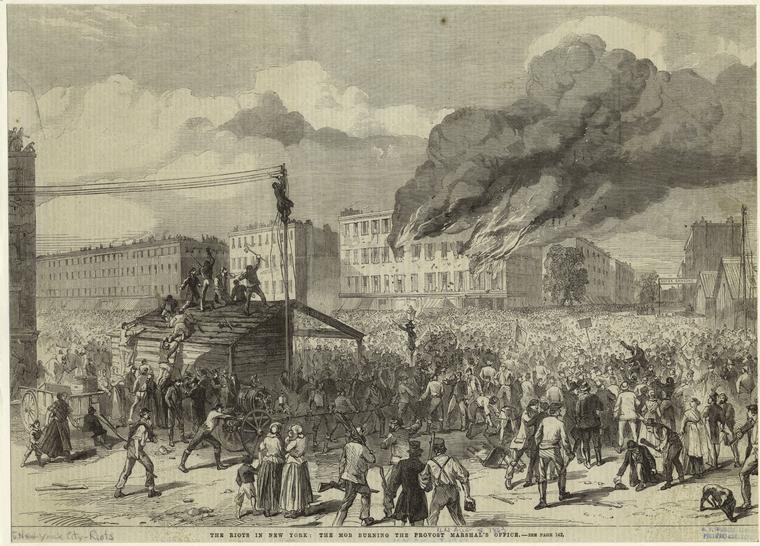 engagements. One of the most famous was Rochester’s 140th New York Volunteer Infantry who saved the day at Gettysburg by occupying Little Round Top on the second day. The
engagements. One of the most famous was Rochester’s 140th New York Volunteer Infantry who saved the day at Gettysburg by occupying Little Round Top on the second day. The 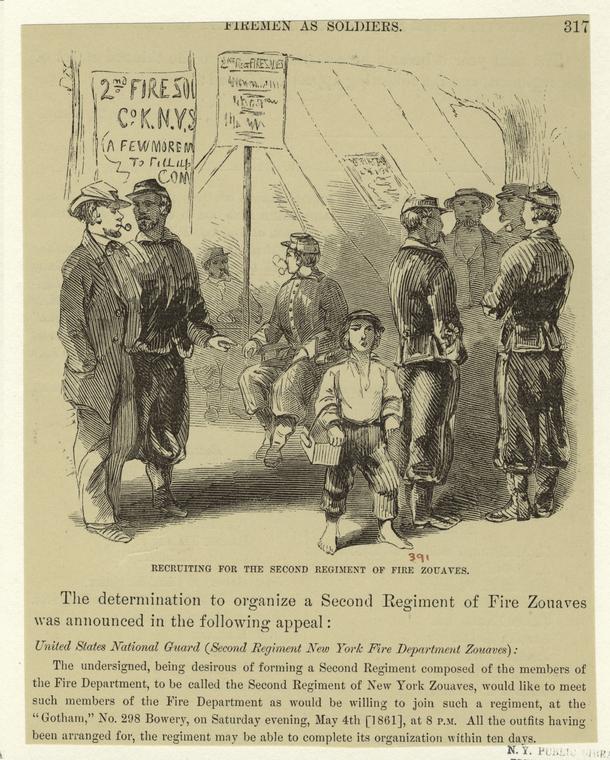 Rochester Regiment’s valor under the leadership of Colonel Patrick O’Rourke is legendary and preserved the Union Army on that critical day of fighting in 1863.
Rochester Regiment’s valor under the leadership of Colonel Patrick O’Rourke is legendary and preserved the Union Army on that critical day of fighting in 1863. 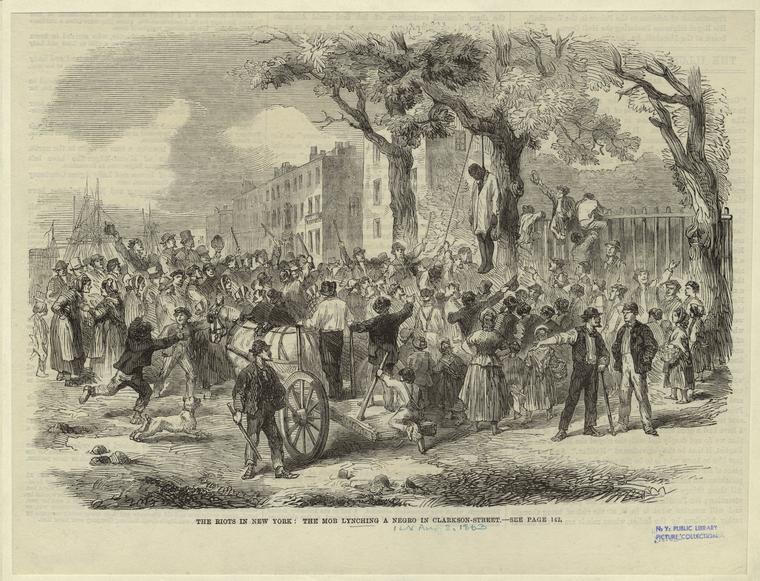 The 140th Regiment, along with hundreds of other re-enactors, will be on hand to recreate the first day’s battle, when Union Army Elements under General John Reynolds
The 140th Regiment, along with hundreds of other re-enactors, will be on hand to recreate the first day’s battle, when Union Army Elements under General John Reynolds battled a Confederate Infantry division lead by General Henry Heth through the streets of Gettysburg. will be filled with streaming troops, the popcorn crackle of musketry and the booming of artillery as re-enactors bring history to life. The epoch battle is one of the most studied events in military history
battled a Confederate Infantry division lead by General Henry Heth through the streets of Gettysburg. will be filled with streaming troops, the popcorn crackle of musketry and the booming of artillery as re-enactors bring history to life. The epoch battle is one of the most studied events in military history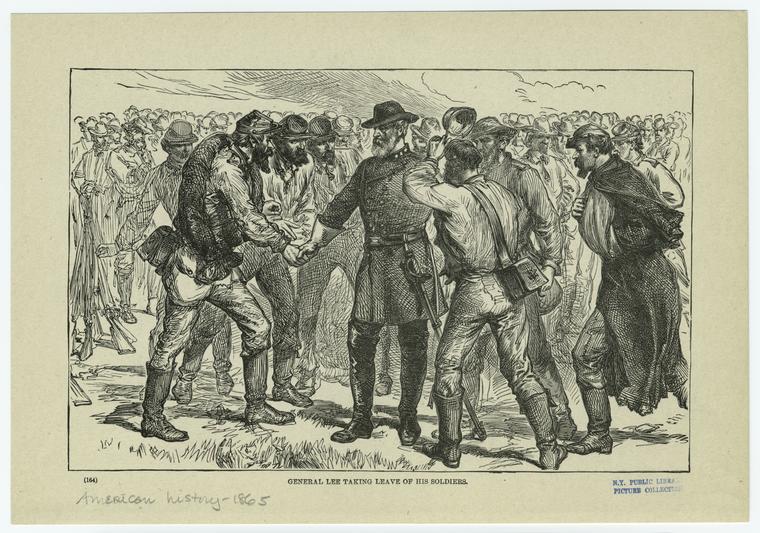

No comments:
Post a Comment